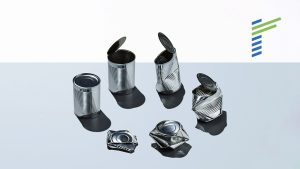At a Glance
- A major North American oil refinery engaged Renoir Consulting to streamline its maintenance work management processes and systems.
- The collaboration resulted in a 77% reduction in the backlog of outdated notifications, a 30% reduction in validation cycle times, and US$36.48 million in business improvement benefits.
- The success of the maintenance work management processes has become a model for all other refineries under the company’s purview globally.
Key results
77%
reduction in backlog of outdated notifications
30%
reduction in validation cycle time
130%
increase in creation of corrective action lists
US$36.48m
in business improvement plan benefits
Background
Our client is a major North American oil refinery that has been in operation for over a century. The company’s largest refinery has the capacity to process approximately 440,000 barrels of crude oil per day. This facility produces a wide range of liquid fuels and asphalt.
The Challenge
The company faced challenges in its upstream operations, particularly in establishing and maintaining consistent maintenance work management processes. They wanted to implement an analogous process across their refining facilities. However, they recognised the need for external support due to internal capacity and expertise limitations.
Based on a positive history of working with Renoir on similar projects, the company decided to engage Renoir again for the development and maintenance of processes and systems.
Project Approach
The project kicked off with Renoir’s Focus Process® to identify key areas of value and potential savings associated with establishing efficient and standardised maintenance procedures and work management.
The Focus Process identified five work streams:
- Materials Management
- Contractor Management
- Identify and Validate
- Planning and Scheduling
- Execution and Closure
Each workstream was supported by a dedicated Management Action Team (MAT) over a structured nine-month implementation period. The MATs were organised through a robust governance process designed to seamlessly connect all teams, from the refinery floor to the central corporate leadership.

Manufacturing: Does your supply chain need a makeover?

How to run effective meetings to drive operational excellence

Fix it before it breaks: Maintenance planning for operational excellence

Winning business strategies from the world of sports
Ready for a change in your organisation?
Implementation
The project began with a mapping exercise of all aspects of maintenance work management. Following the completion of this mapping process, key refinery personnel thoroughly reviewed each procedure to ensure that the processes were accurately captured, and to identify areas of weakness, bottlenecks, or concern.
Each MAT identified and implemented the following initiatives:
1. Identification
Defined and implemented quality notification standards, installed job aids, developed and implemented Key Performance Indicators (KPIs) dashboards and implemented an identification Management Control System (MCS).
2. Validation
Evaluated the backlog of notifications for potential risks, addressed overdue items, established Terms of Reference (ToR) for validation meetings, and introduced support tools for Scheduled Change Window (SCW), Lead Change Window (LCW), Baseline Schedule Development/Baseline Schedule Freeze (BSD/BFD) and risk prioritisation. In addition, an urgent notification management process was designed and implemented, and the roles and responsibilities of key leadership positions were revised.
3. Planning
Improvements implemented include fundamental training for planners, the establishment of a backlog management process, the introduction of Terms of Reference (ToR) and meeting effectiveness scoring, the integration of self-verification and feedback mechanisms to improve planning quality, the implementation of planning quality standards and processes, and the adoption of site walk-down, work pack and work pack release checklists.
4. Scheduling
Developed and implemented Terms of Reference (ToRs) for both four-week and one-week commitment scheduling. Conducted audits on meetings and their effectiveness, while establishing a one-week work readiness criteria. Designed and implemented root cause analysis processes, together with the implementation of scheduling Management Control System (MCS).
5. Execution and Work Closure
Implemented daily work review templates to facilitate the collection of planner feedback, actual time, and non-attainment codes. Conducted meeting effectiveness audits, created job aids, and deployed dashboards to monitor backlogs and maintenance optimisation performance.
6. Contractor Management
A strategy guidelines document was developed, and a three-year strategy was developed and approved with input from stakeholders across all operational functions. In addition, a comprehensive set of metrics for contractor management was developed together with critical Terms of Reference (ToRs) for contractor management. An approach was developed to improve the use of Non-Conformance Report (NCR) and Corrective Order (CO).
7. Materials Management
The business was redesigned, and operational meetings and Key Performance Indicators (KPIs) were introduced. Processes were updated to align with work management priorities and material status dashboards were installed.
Results
39%
reduction in outdated planned backlog
18%
improvement in planned maintenance orders per day
6 months
at or below maintenance budget
US$1.5m
in project savings
By the end of the project, newly designed and accepted work management processes had been developed and implemented throughout the refinery. We also oversaw the development and implementation of essential tools, Key Performance Indicators (KPIs), Management Control Systems (MCS) and dashboards, as well as comprehensive training to ensure proficient use.
Our project KPIs indicated not only substantial financial gains within the fiscal year, but also analogous efficiency improvements and a reduction in refinery risks. The company’s initial objectives, which included the development, adoption, and implementation of refinery-wide work management processes, were not only met but exceeded, to the client’s satisfaction. The work carried out by Renoir Consulting has been heralded as a model for all other refineries under the client’s purview globally.
*We have intentionally omitted client-specific details to maintain strict confidentiality.
Improve asset availability, reliability, and capability to maximise efficiency.












